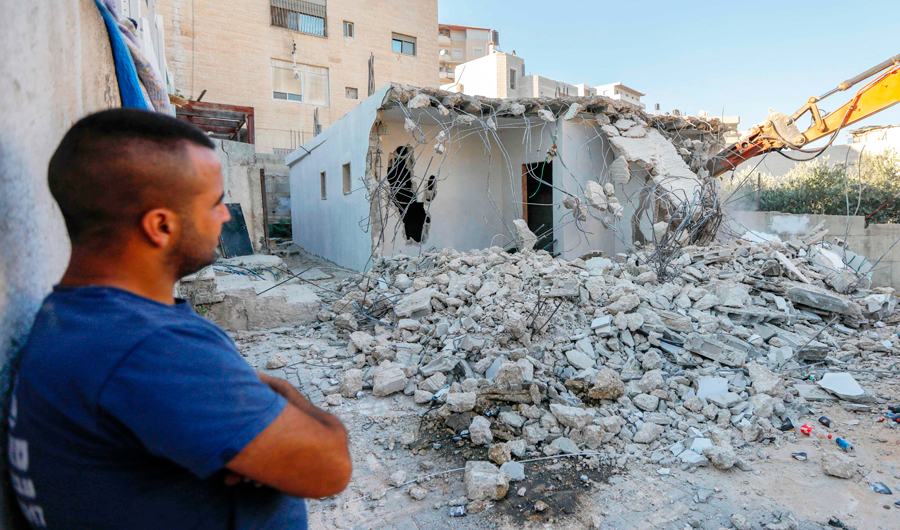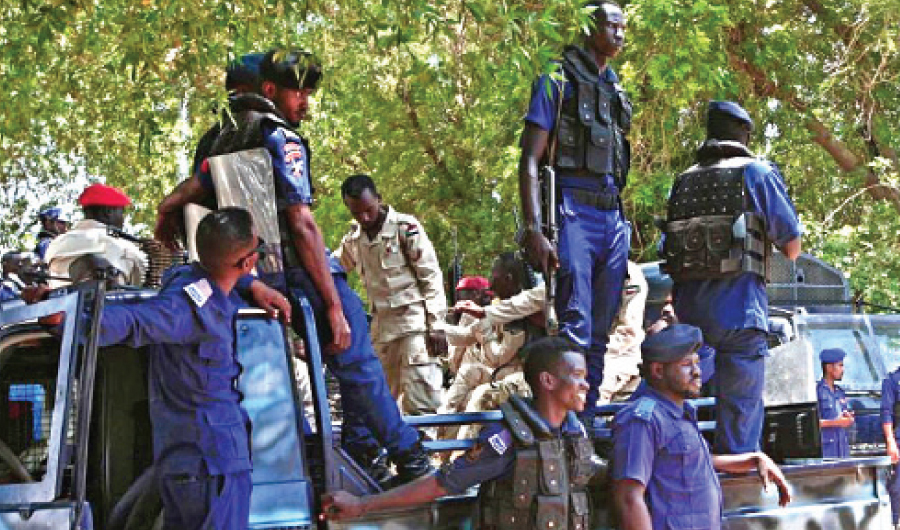Denied permits, Palestinians raze own homes in Jerusalem
JERUSALEM: Palestinian Alaa Borqan preferred to tear down his own house in Israeli-annexed East Jerusalem after a court ruled that it was constructed illegally and must be demolished.
The 35-year-old was given two options: To destroy his four-bedroom home in the Jabal Mukaber neighborhood himself, or to let the city council do it and then send him the bill.
The Israeli authorities regularly raze homes built by Palestinians on their own lands in East Jerusalem and the occupied West Bank if they lack Israeli construction permits.
The catch, according to an UN study, is that such permits are “virtually impossible” to obtain and the result is a chronic housing shortage.
“I applied to city hall for a building permit, but without success,” Borqan told AFP.
“I spent around 75,000 shekels ($22,000) on legal fees and on a ground survey,” he said.
Ben Avrahami, an adviser to the city authorities on East Jerusalem, said that every case is handled strictly according to the law.
“The demolitions are being carried out by order of an Israeli court and are subject to careful legal scrutiny,” he said.
Borqan, a father of four, however said he was dismayed after he hired a bulldozer that tore down his own house in front of his eyes.
He said he had invested all his savings in the building, taking on a debt of 800,000 shekels and putting in four years of work.
The court, which ruled the structure illegal because it was built without a permit, fined him 60,000 shekels for the offense.
He now lives with his family in a house that he rents for 2,800 shekels a month.
Standing in the rubble of his former house, he recounted “how difficult it is to demolish (a home) with one’s own hands.”
According to city hall, 44 houses have been demolished in East Jerusalem since the start of this year.
Some owners prefer to raze their homes themselves to avoid having to pay sometimes thousands of shekels to the city’s demolition crews.
Under Israeli occupation since the 1967 Six-Day War, East Jerusalem is home to around 300,000 Palestinians and 200,000 Jewish settlers.
Palestinians charge that the true purpose of the permit regime is to empty the city of its Palestinian inhabitants. The UN’s Office for Humanitarian Affairs (OCHA) noted in an April 2019 report that in East Jerusalem “a restrictive planning regime applied by Israel makes it virtually impossible for Palestinians to obtain building permits.”
“At least one-third of all Palestinian homes in East Jerusalem lack an Israeli-issued building permit, potentially placing over 100,000 residents at risk of displacement,” it added.
OCHA says that only 13 percent of east Jerusalem is designated for Palestinian construction, much of which is already built up, while 35 percent has been allocated to Israeli settlements, which are illegal under international law.
According to the director of the Jerusalem Center for Economic and Social Rights, Ziad Hammuri, the self-demolitions are “humiliating” and “have considerable psychological effects” on families, in addition to heavy financial costs.
But many Palestinians still prefer to demolish their property themselves, fearing arrest if they are unable to pay the city’s demolition bill or fines.
On July 2, the Shalalda family also demolished their home, a two-bedroomed apartment in A-Tur.
It is “very difficult, a dream has been destroyed,” lamented Sara Shalalda, a mother of six.
“We were about to move in, we didn’t want to have to pay rent anymore.”
According to OCHA, 65 children were displaced and 85 others variously affected by self-demolitions in east Jerusalem in the first six months of the year.
Palestinians lack 30,000 to 40,000 housing units, rents are high, and building permits are expensive, said Mahmud Zahaykeh of the Jerusalem Housing Union.
“The average rent is $800 and a building permit for an apartment can cost $50,000,” he added.
“Only 20 percent of residents obtain permits, and the process can take five years.”
Avrahami says the city grants around 250 building permits to Palestinians each year.
Borqan had hoped to be among the lucky ones but his hopes were dashed.
“They don’t want us to stay,” he said, referring to Israel.
“But we are not going to move.”

An inside job: How a Jewish terror group broke hundreds out of a British jail in PalestineBahrain tells Pompeo there must be two-state solution for Israel-Palestine




